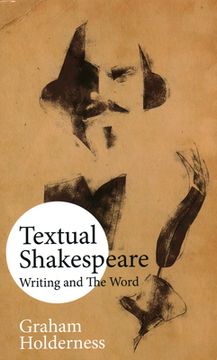Share
Textual Shakespeare: Writing and the Word
Graham Holderness
(Author)
·
Edward Everett Root
· Hardcover
Textual Shakespeare: Writing and the Word - Holderness, Graham
£ 85.04
£ 94.49
You save: £ 9.45
Choose the list to add your product or create one New List
✓ Product added successfully to the Wishlist.
Go to My WishlistsIt will be shipped from our warehouse between
Monday, June 24 and
Wednesday, June 26.
You will receive it anywhere in United Kingdom between 1 and 3 business days after shipment.
Synopsis "Textual Shakespeare: Writing and the Word"
In this expanded and much revised new edition Professor Holderness reassesses the Bard as a writer in the light of the most recent "revolution" in bibliography and textual studies. This has shifted much opinion about the playwright, how he worked, and with whom he collaborated. Yet there remain many unsolved riddles. / This is a book about unresolved (and unresolvable?) questions about Shakespeare, and about writing, creativity and its study. / Professor Holderness reviews the current debates in textual theory and practice. He concludes that "Shakespeare" is not a writer but a collection of documents, none of which can with any certainty be linked to whatever it was the author wanted to say. He goes beyond both traditional and "materialist" bibliography to show that texts are both physical media, made and remade by a series of craftspeople; and rich repositories of changeable meaning. / According to modern literary studies all texts are copies, always already changed, and there are no "originals". Editors are translators; and scholars and critics rewrite the writing they study. The book advocates a recovery of ancient concepts such as creativity and imagination, together with a recognition of the technical and essentially collaborative nature of all writing. Shakespeare is then situated within this theoretical context, via a brief history of the plays' textual reproduction. / A series of chapters on individual plays provides illustrative examples of such textual activities in practice. The book concludes that all Shakespeare scholarship, editing and criticism are devoted to a quest for something missing: not the lost manuscript (which even if recovered would not in any case answer all our questions), but rather the absence that writing always invokes.
- 0% (0)
- 0% (0)
- 0% (0)
- 0% (0)
- 0% (0)
All books in our catalog are Original.
The book is written in English.
The binding of this edition is Hardcover.
✓ Producto agregado correctamente al carro, Ir a Pagar.

